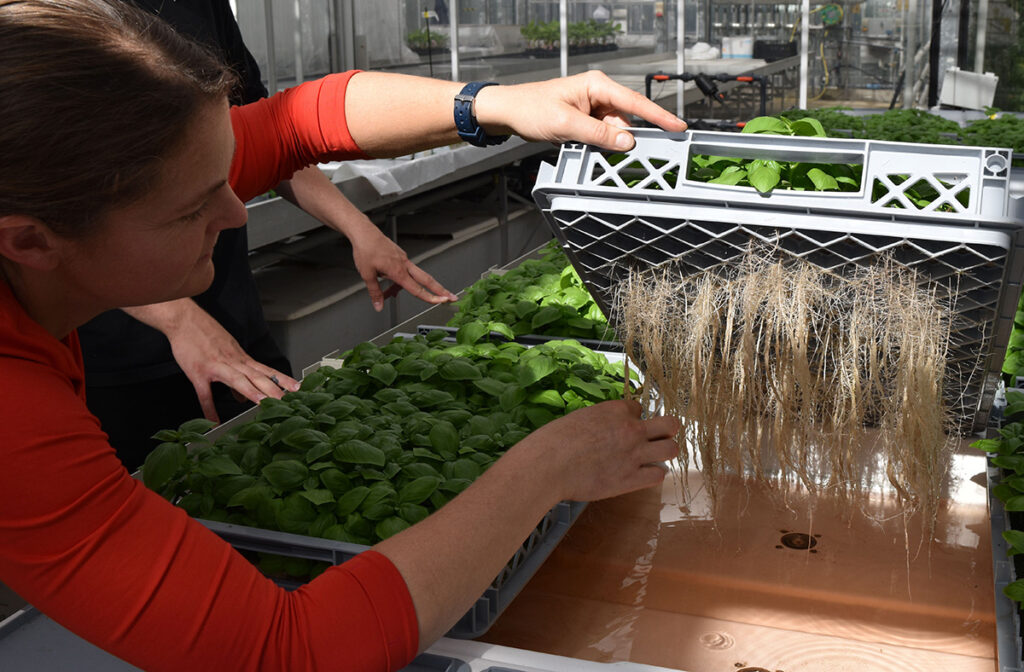Which produces the best quality crop for the lowest amount of energy – an ultrasonic aeroponic system or a hydroponic irrigation system?
Aeroponic technology specialists LettUs Grow (UK) have teamed up with Wageningen University and Research (NL) to answer this question in a trial that aims to boost the understanding of aeroponics in the available academic literature to encourage innovative agricultural practices in the future. LettUs Grow will be actively involved in the trial which is being conducted as a research collaboration project.
Prof. Leo Marcelis, Professor of Horticulture and Product Physiology at Wageningen University, will be leading the trials together with Dr Katharina Huntenburg. Marcelis said: “We are happy to conduct this research in cooperation with Lettus Grow, addressing an important question with respect to optimizing growth and quality relevant for greenhouse and vertical farm production systems.”
In an aeroponic growing system, plant roots are irrigated with a fine mist of water and nutrients, whereas with hydroponics plant roots are supplied with a nutrient solution in intervals or are constantly growing in nutrient solution.
‘Ultrasonic’ aeroponics uses high-frequency sound waves that shake water and nutrients, until they disperse into lots of tiny droplets, like a mist. The ultrasonic aeroponic system used in this trial, has been supplied by LettUs Grow and will be operated alongside two other hydroponic systems – ‘ebb and flow’ and ‘deep water culture’.
The research will be conducted at Wageningen’s campus greenhouse facilities over a five month period. The trials will compare the crop growth, development and quality of basil in greenhouse cultivation, while also potentially exploring the energy costs associated with each of the three irrigation systems.
Researchers will gather data on:
- growth rate
- productivity
- nutritional content
- energy consumption
- shelf life
- plant physiological characteristics
- the effects of seasonality
Jack Farmer, Chief Scientific Officer and co-founder of LettUs Grow said: “It is a core value for us that everything we do and promote is rooted in good science; so it’s really gratifying as a UK technology company within the CEA sector to be collaborating with the leading academics in the space. We’re pleased to have the opportunity to build the relationships with Dutch horticulture, which we recognize as world-leading and a cornerstone of the industry.”



